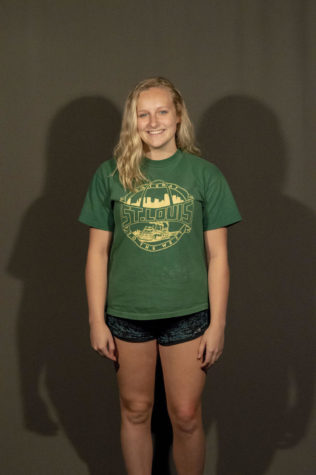Dear Mom and Dad,
November 21, 2017
I need a new suitcase. After years of overuse, it has finally given up. I didn’t notice the sizable hole right smack on the front of it until I heard a “clank” and peered over my shoulder to see my body spray rolling down the driveway and into the street.
I’m shocked it took this long. The past four years of practically living out of this suitcase have caught up to it. Traveling back and forth from mom’s house to dad’s house, then back to mom’s house and back to dad’s again has taken its toll.
Three million other children in the United States experience this struggle of having two homes. According to the American Psychological Association, about half of all American children will witness the breakup of their parents. And almost half of this group will see the breakup of a parent’s second marriage.
Despite the negative connotations associated with divorce, it’s not always a bad thing. A lot of the time, a divorce is the best thing to do for the wellbeing of the children and the parent. Having divorced parents is better than having a home filled with tension.
Even though divorce can be a good thing, the things that can come along with it aren’t as appealing. Examples of healthy relationships can be hard to come by when you come from a family of divorce. I don’t know what a happy marriage looks like. Additionally, children of divorce tend to have more negative perceptions of marriage. They are less optimistic about long-lasting marriages, and they have less confidence in their ability to maintain a healthy relationship.
Another huge problem in the U.S. is parental depression, especially among divorced parents. Depression in parents can lead to disengaged and less positive parenting. Due to the lack of a second parental figure in the household, a child of a parent with depression often feels that the happiness of their parent is their responsibility. This also means that a child may feel that they are the cause of their parents depression. They feel like they aren’t good enough.
Along with feeling pressure to maintain their parents happiness, older children of divorce often are put in between disagreements between their divorced parents. Because they are older, the responsibility often falls on their shoulders to be the peacemaker. They often hear, “Well, tell your mom this,” or “You need to make sure your dad does this.” As a teenager, it shouldn’t be my responsibility to communicate between my parents. I have enough to worry about as it is.
I’m expected to act like an adult, but I’m treated like a kid. I’m forced to pack up my life twice a week so that you can each spend time with me. I feel obligated to be the go-between during disagreements. My perception of what a healthy relationship looks like will forever be skewed. I’ve become a peacemaker, a therapist, a parent middleman. But even when it feels like the whole world is sitting on my shoulders, you’re still my parents who love me, and a divorce doesn’t change that.
Sincerely,
Your child



